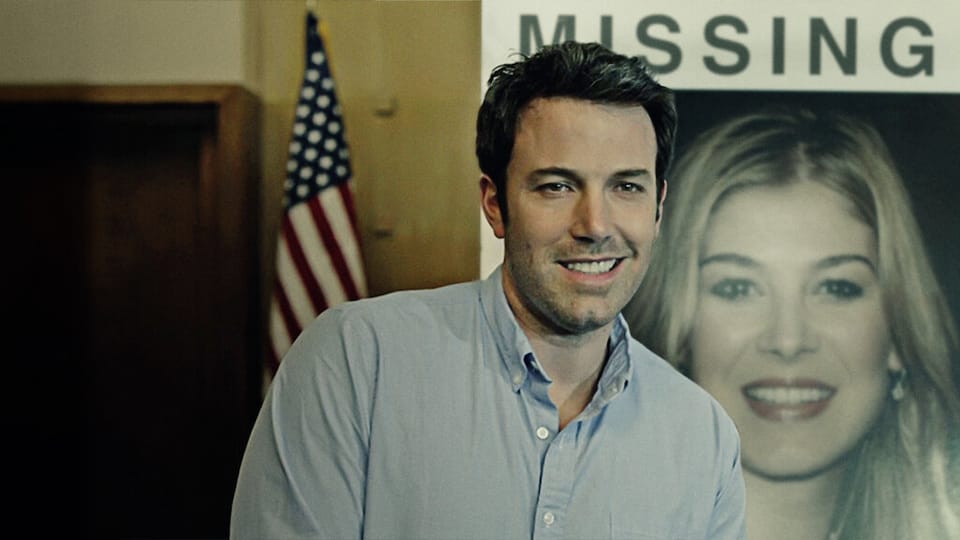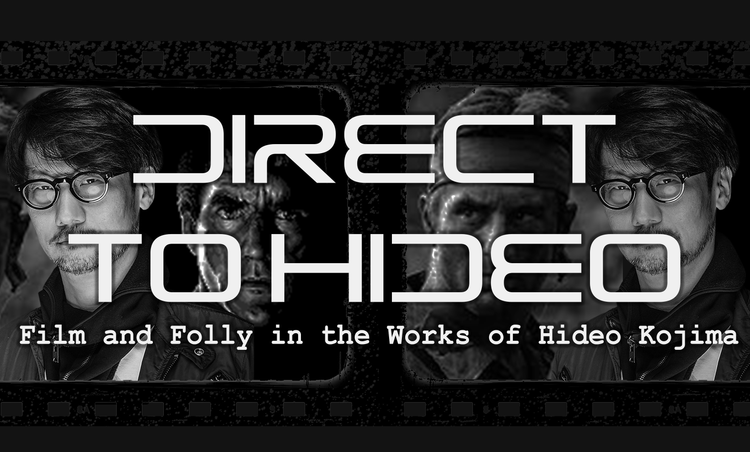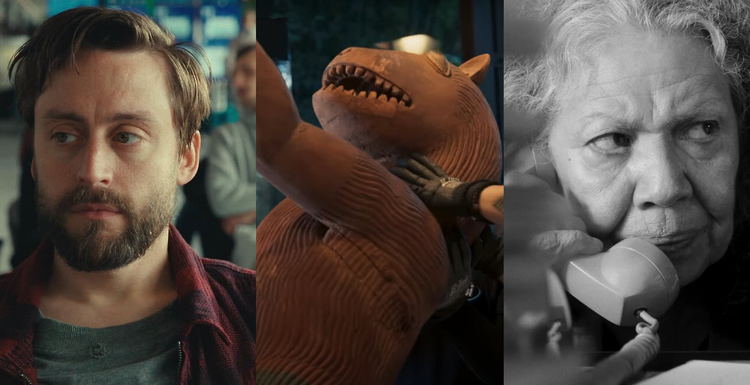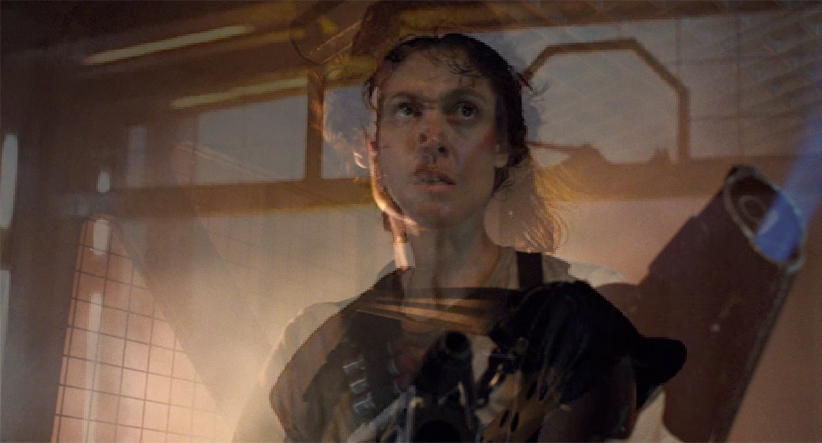Gone Girl at 10: Fifteen Minutes of Shame

1 - Ten Years Gone
At the time of Gone Girl's release, October 3, 2014, the battle of the sexes was all anyone could talk about. The movie starts as a mystery about a jerk who might have killed his wife, only to reveal that, actually, his wife faked her kidnapping to frame him. She's faked a rape before, and she does it again, spectacularly murdering an old boyfriend in the process, so she can return to her husband and save him so she can conceive a child with his sperm but not him to trap him in their marriage for good. It wasn't playing on tropes and types but weaponizing them, and when the moody fog of its poster cleared it wasn't obvious who had been left to bleed out.
Whether Gone Girl was a feminist revenge fantasy or validated misogynist fear of feminine wiles, or both or neither, was litigated in numerous think pieces at the time of release. It's been the subject of retrospectives as well, and though it is a perennially rich topic, it is not my primary interest. Like its big brother Fight Club, Gone Girl was in some ways too good at playing its ironic gender tropes straight, which led some men to really, really miss the point. But the ways that David Fincher's direction of Gillian Flynn's adaptation of her own 2012 novel sometimes tip the scales against the fairer sex—these complicate the movie but don't harsh it the way that e.g The Brood and True Lies radiate their directors' rancid divorced-guy energy.
But I digress. The gender issues don't fully tell the story of why Gone Girl ended up being David Fincher's highest-grossing film, and why it is still such a blast. The movie was a lifeline for me, a gay man, a decade ago, when I was trying to make sense of a recent breakup while still stuck living with my ex-boyfriend. This may well be its greatest legacy; its most-liked review on Letterboxd, over 17,000, simply states, "Whenever I think about getting back together with my ex, I watch this film. Works like a charm every time." Ten years on, the film's troubling and disputed points about men and women and marriage are not nearly so trenchant as the sick, cathartic power it holds for anyone who has been in a relationship that ended with the other person dead (to them).
2 - Goon/Gurl
Gone Girl is a funhouse mirror of the performances that couples do for each other, and what happens when they drop the act. Nick Dunne's (Ben Affleck) film-length bewilderment is tinged with an ugly, deep-seeded anger about "being picked apart by women," but it is a response to learning his spouse, 'Amazing' Amy (Rosamund Pike), is batshit insane. This is a universal experience. My old boyfriend of 2014, once affectionate, became cold and hostile overnight. To my knowledge he did not murder anybody, though he did kill a houseplant I was nursing just to spite me. Anyone who suddenly no longer recognizes their romantic partner—I'm thinking especially of divorcees left to raise the kids, who the other parent considers collateral damage if they consider them at all—they can relate to the predicament if not the sentiments of hapless Nick Dunne, just as much as those of his wife.
There are two sides to every story, and as increasingly unhinged as Amy's actions are, they are never inexplicable. As relayed in her famous Cool Girl monologue, the Dunnes' marriage began with mutual impression and enchantment, but only a few years later that gave way beneath the strain of the Great Recession. They lost their jobs, and Nick moved them back to his Missouri hometown and shed his charm and wit to become just another beer-swilling dude cheating on his wife. Not all relationships will survive when their participants stop putting their best foot forward. My ex stopped speaking to me after the first time I yelled at him, which was admittedly wrong, but I was yelling about him watching Pat Buchanan on The McLaughlin Group during breakfast, so who was the bad guy, really?
The trigger for Amy's rage is not Nick's infidelity in itself. It is specifically in how she caught him using their private romantic gesture—him using two fingers to brush a dusting of sugar off her lip—on the college student, his college student, after a tryst at the bar they used the last of Amy's trust fund to buy. It isn't the pathetic cheating that sets Amy off but the, in Fincher's words, "plagiarism" of their relationship, the only thing she could still call her own.
Although the word isn't used in the film itself, it nonetheless calls back to one of Nick's earlier lines, when he learns that when Amy was a child her parents made millions from the Amazing Amy children's books they based on her life: "They plagiarized your childhood." To which Amy coolly responds, "No, they improved upon it, and then peddled it to the masses." The Amazing Amy of kids fiction was always better than the genuine article, who had to labor under those impossible expectations.
And right there is the key to the movie and how it has if anything become more relevant since its release. Amy has lived her entire life acutely aware of how compelling a good story can be, and how wide can be the gap between the fiction and the facts. The details of Amy's baroque scheming, among them faking a pregnancy in her medical record by collecting the urine of a neighbor who's expecting—these bear little resemblance to real-life behavior; but the bigger picture, of trying to control the narrative of her life? Of their lives? That's everyone's life now, in the always-online 21st century.
3 - Ten Year Panopticon
Tweets, Facebook posts, Instagram selfies—these began in the mid-oughts as throwaways shared among college students. None of it was supposed to actually matter. But by 2014 the rest of the world had became networked, and those students had graduated to the new precariat class. With aspiration came curation, and accounts were scrubbed of any potentially embarassing candor that might raise a potential employer's brow. Yet while they, we, wanted to escape the boss's notice, we also wanted the attention of our peers, if not the entire internet. We wanted others to see our best selves: clever, tasteful, above all successful. Who needs to write and illustrate and publish a storybook about their kid when they can just poast?
Although David Fincher had already made an entire movie about the creation of Facebook, social media plays a surprisingly minimal roll in Gone Girl. Cell phone cameras abound, but going viral is not something that really happens. Instead the narratives and images proliferate on television, particularly crime headline news shows. It's to these programs and their audiences that Amy pitches her just-so tale of beauty and the beast. The most influential is Ellen Abbott (Missi Pyle), a pitch-perfect Nancy Grace parody that never feels mean because she is a chirpy voice for the movie's cynicism rather than a target of it. Confronted by Nick about accusing him of homicide and twincest her mea culpa is simply, "I go where the story goes." That's all any of us are doing, really, telling stories.
Perhaps the absence of social media can be chalked up to Nancy Grace being a more familiar, graspable touchstone of outrage culture in 2014. At that point internet platforms' ability to target individuals for censure and harassment at scale was only just beginning to come into view: it was only a year before that Justine Sacco had gone to sleep after tweeting a tasteless joke about AIDS and Africa and woke up an international pariah. Gamergate, a reactionary harassment campaign against feminist game journalists, had kicked off only months before Gone Girl's release. TikTok was two years from even launching. Cable TV and its 24-hour news networks were still dominant, and influence between the real world and the online one was still a one-way street.
In subsequent years the wall of separation between online and real life disintegrated. Social media was at the center of many stories and a presidency, but the most germane to Gone Girl might be the panoptic spectacle of West Elm Caleb, in which a group of New York City women on TikTok discovered they had all gone out with and been ghosted by the same mustachioed West Elm furniture designer. United in righteous fury, they incited their legions of followers to identify and find and ruin him. In today's world anyone can make themselves an Amy as much as they may end up a Nick.
At the height of his unsought infamy West Elm Caleb became a New York billboard. His dating profile was plastered up by a rival dating app company, a dystopic inversion of the missing persons billboard in Gone Girl with a photo of beloved Amazing Amy. For the rest of us, social media has been a more figurative advertisement of ourselves. Once a couple has moved beyond dating apps their relationship becomes one more aspect of their lives to be refracted into the world. They don't get a kids book adaptation of their courtship or a talkshow appearance, but they do have followers on social media to whom they tell their story. They may post photos of themselves together, smiling and enjoying each other's company, and communicating a happy couple. They may live thousands of miles apart and use apps and text messages to stay in regular contact.
They also get dumped by text message and blocked on social media and then have to break the news to friends that the relationship is over, as I recently did.
4 - It's Been Seven Hours and Fifteen Days Gone
"Don't write angry." Gillian Flynn set this rule for herself while writing Gone Girl. While writing a book with acidic observations about marriage, it was important Flynn not air her disagreements with her husband and put their relationship at risk. If they had a row, she would not write while the anger was still fresh.
This is a good rule for a writer in a relationship; it does not apply to one who is no longer in one, but I am going to adhere to it anyway, at least concerning the more recent loss. No one is served by me airing my dirty laundry and salting fresh wounds, and I was just warning against internet justice, after all. (Or, he said after publishing, maybe turning it into Content in any capacity is a mistake.)
After my breakup of ten years ago the loopy last act of Gone Girl was the only thing in the world that made perfect sense. The movie and the book's caustic black humor was comfort food. I revisited the film immediately after my recent break-up, it is the reason this retrospective exists, and while it still works as an immediate balm, it's also more troubling than before. This was a much longer relationship, with higher emotional stakes, and so much deeper is the unease provoked by the movie's idea that our partners are on some level unknowable.
That notion comes into sharpest relief when a relationship fails, which is why the movie resonates better in that context than with successful pairings. Before ours fell apart we were happy, it seemed, and now questions haunt my photos of those days like accusing spectres: were we lying to each other? To ourselves? What have we done to each other? "There's something disturbing about recalling a warm memory and feeling utterly cold," Nick says in Gone Girl's first chapter, and that feeling is even more acute when the moments of those memories can be pulled up with the swipe of a finger.
I was angry when I started writing this, but now I am mostly just sad. I loved and never wanted to hurt my boyfriend and thought he felt the same of me, and we both seem to have hurt each other anyway. Sadness isn't an emotion Gone Girl has much use for, its black heart could never admit of it, and that's fine. The movie ends as a horror-comedy precisely because Nick and Amy should end their poisonous relationship, but putting on facades makes them better than their authentic selves. This isn't intended to be instructive, a portrait of the ideal marriage, but an ironic photo negative. If the Dunnes' picturesque nuptials are knowingly illusory, a performance for the outside world, genuine love is a shared delusion, known only to its participants. When it should come undone, when the two no longer agree on the same reality, the love, now alone, is just delusional. Whose delusion is it? Depends who you ask.





Member discussion